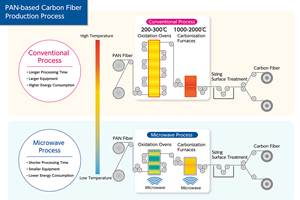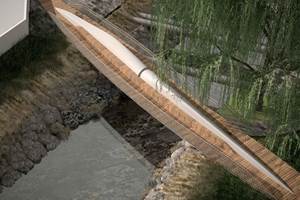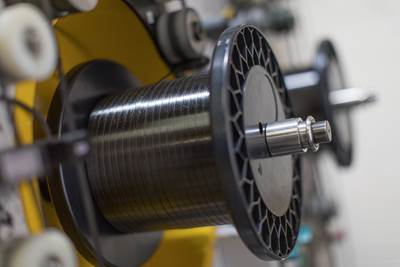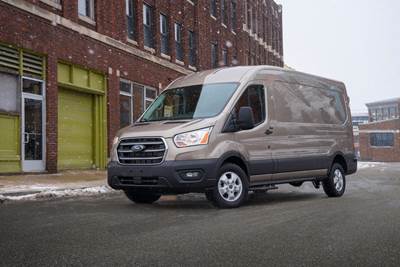Innovate UK grants NCC £355k to help achieve net zero future
Funding will investigate how composite materials can best be used in final products, mitigation of their environmental impact and overall sustainability.
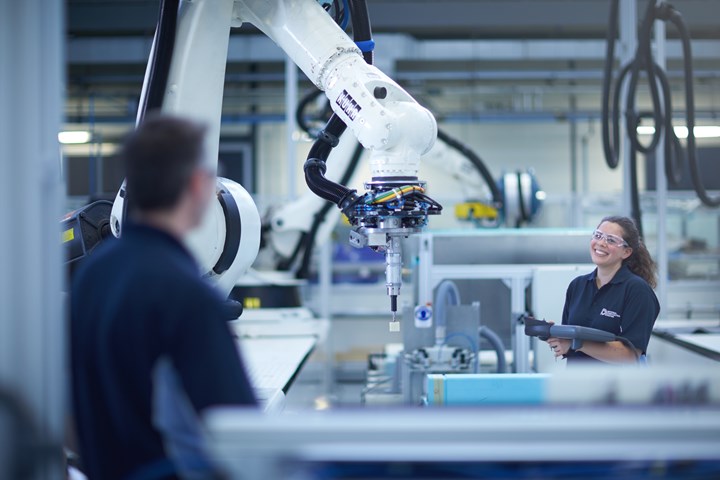
Photo Credit: NCC
The National Composites Centre (NCC, Bristol, U.K.) was recently granted £355k by Innovate UK to work with U.K. SMEs to investigate and validate ways to help achieve a net zero future.
Awarded as part of the Sustainable Innovation Fund, the funding will enable the research and development center to work with a variety of SMEs, focusing not only on how composite materials can be best used within the final products, but also, on the environmental impact of the materials being used and how this can be mitigated.
According to NNC, the innovative projects cover a range of industries, but all have sustainability at their core, whether they are looking to use recycled materials in existing products, or design new products that are more recyclable. A life cycle assessment will also be conducted by the NCC for each project.
For example, the NCC will be part of a consortium working on TUPROOFS, which is investigating how to make retrofit roof panes more efficient at generating power by incorporating solar power and a water-heating process underneath the panel. The consortium is comprised of Advanced Construction Technologies, BIPVco, Midlands High Growth, West Rogers Ltd. and the Hadley Group. If successful, it is anticipated that more than 30,000 houses in the U.K. will be retrofitted with the panels, providing thousands of families around the country with greener energy, eliminating fuel poverty and creating thousands of new jobs.
The Novel Composite E-Bike project partners NCC with mountain bike manufacturer, Starling Cycles and Composite Braiding, which specialize in thermoplastic composite braiding technology. The project will develop what is said to be the first continuous thermoplastic fiber e-bike in the world, using thermoplastic composite braiding to create the A-frame. According to the NCC, thermoplastics allow the resin to be stripped from the fiber at end-of-life (EoL), meaning the product will be more recyclable and more easily repairable during its lifetime. The aim is for the Novel Composite E-Bike to be manufactured and sold around the world, creating a net zero transport option for millions of people.
Further, working alongside Cecence and ELG Carbon Fibre on the Sustainable Aero Seat Back project, the NCC will be collaborating on redesigning the structural entity of an airplane seat, replacing as much virgin carbon fiber as possible with recycled materials while maintaining structural performance to meet strenuous certification requirements.
“As the NCC, our role is to help industry and innovators solve some of the most challenging problems facing the world today, and how engineering can help achieve a net zero environment is one of those,” says Leah Rider, technology program manager at the NCC. “We’re excited about these projects and the potential impact they could have in all walks of life, not just through the results themselves, but also how that knowledge could then be applied to other products and processes.”
She adds, “We’re embedding sustainability into all our projects, and through our Sustainable Composites partnership with the Centre for Process Innovation (CPI, Wilton, U.K.), we are working with industrial, academic and government partners, to build a supply chain from raw material suppliers to EoL recycling with the ability to deliver the next generation of sustainable composites by 2040.”
Innovate UK, as part of UK Research and Innovation, is investing up to £191 million to fund single and collaborative research and development projects as part of the Sustainable Innovation Fund over the next two years. The aim of these competitions is to help all sectors of the U.K. rebuild after the effects of COVID-19.
Related Content
Microwave heating for more sustainable carbon fiber
Skeptics say it won’t work — Osaka-based Microwave Chemical Co. says it already has — and continues to advance its simulation-based technology to slash energy use and emissions in manufacturing.
Read MoreWatch: A practical view of sustainability in composites product development
Markus Beer of Forward Engineering addresses definitions of sustainability, how to approach sustainability goals, the role of life cycle analysis (LCA) and social, environmental and governmental driving forces. Watch his “CW Tech Days: Sustainability” presentation.
Read MoreRecycling end-of-life composite parts: New methods, markets
From infrastructure solutions to consumer products, Polish recycler Anmet and Netherlands-based researchers are developing new methods for repurposing wind turbine blades and other composite parts.
Read MoreNatural fiber composites: Growing to fit sustainability needs
Led by global and industry-wide sustainability goals, commercial interest in flax and hemp fiber-reinforced composites grows into higher-performance, higher-volume applications.
Read MoreRead Next
Secured Innovate UK funding expands Bindatex tape slitting capabilities
Funding will ensure 1-millimeter thermoplastic UD slit tape volumes can meet growing demand for aircraft and other key transport applications.
Read MoreNCC, Ford partner to lightweight Ford Transit van
The award-winning CHASSIS project aims to lightweight three van components, a step toward reduced emissions and affordable mainstream autocomposites.
Read MorePlant tour: Daher Shap’in TechCenter and composites production plant, Saint-Aignan-de-Grandlieu, France
Co-located R&D and production advance OOA thermosets, thermoplastics, welding, recycling and digital technologies for faster processing and certification of lighter, more sustainable composites.
Read More

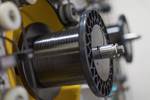







.jpg;maxWidth=300;quality=90)






